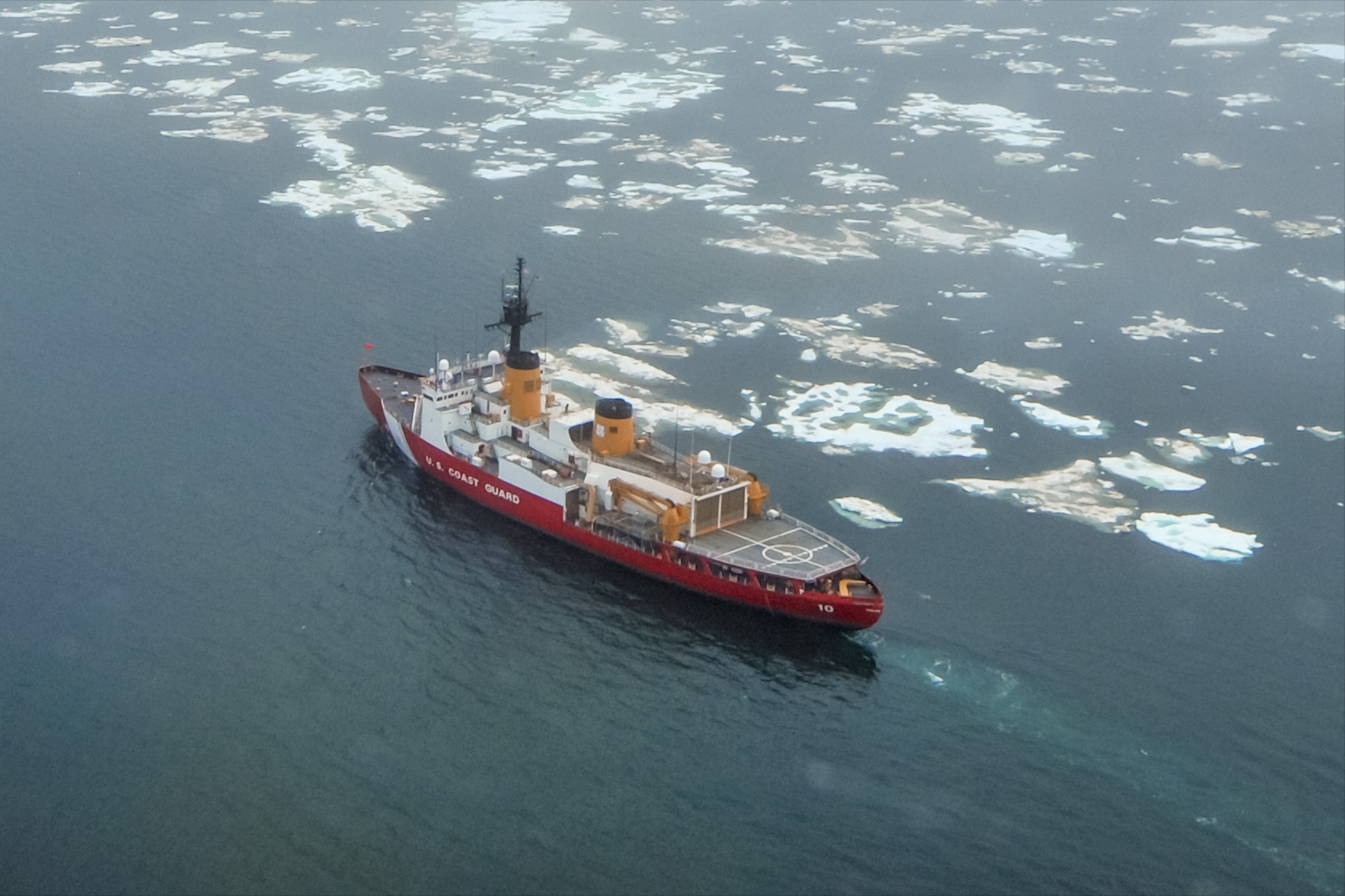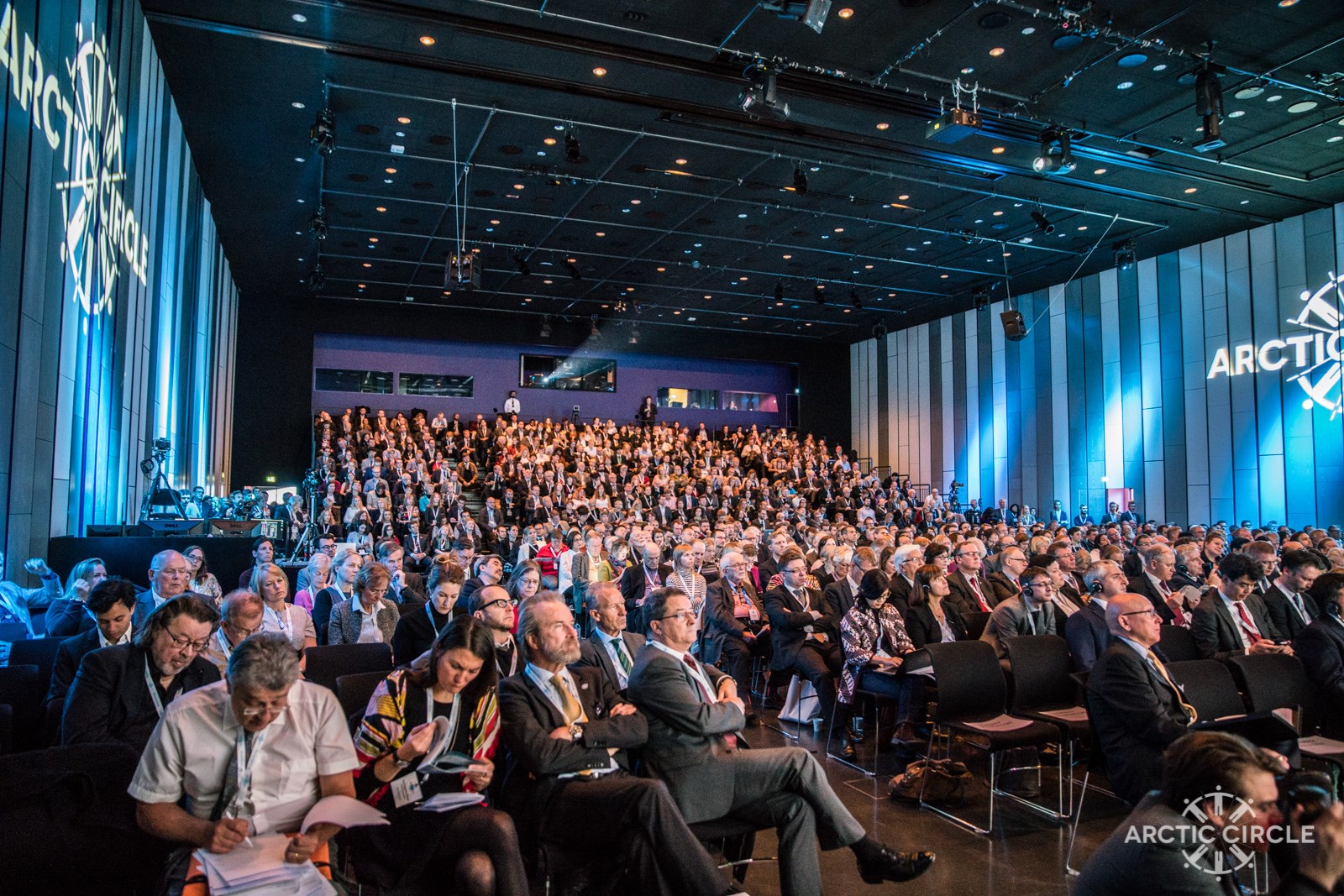Is the US paying enough attention to its own interests in the Arctic? Maybe not, reports suggest

As the United States’ chairmanship of the Arctic Council winds to a close later this spring, a pair of new think-tank reports suggests that the future of U.S. activity and involvement in the Arctic remains in doubt, and that the country could — and should — be doing more to secure its interests in the region.
The first, a wide-ranging report from the Council on Foreign Relations titled “Arctic Imperatives: Reinforcing U.S. Strategy on America’s Fourth Coast,” evaluates current U.S. engagement in the Arctic in areas ranging from national security to the environment, economy and well-being of Native groups, and comes to the conclusion that “the United States needs to increase its strategic commitment to the region or risk leaving its interests unprotected.”
As the CFR report describes it, the U.S. already lags behind other Arctic nations in both engagement with the region and in infrastructure. Those nations, the report says, have “updated their strategic and commercial calculations to take advantage of the changing conditions stemming from the opening of the region”—with the clear implication that the U.S. has not.
[Why 2016’s US-Canada joint Arctic statement still matters in the Trump era]
To do so, the CFR report lays out six broad Arctic policy recommendations for the U.S. Two of them—investments in Arctic infrastructure, from ports to broadband, and building more polar icebreakers—focus on physical assets, while three others address national engagement in the Arctic: ratifying the UN Convention on the Law of the Sea, strengthening international Arctic cooperation (both within the Arctic Council and outside of it); and funding scientific research. A sixth, less concrete recommendation—“Support sustainable development and Alaska Native communities”—involves both.
A second report, from the RAND corporation, focuses more narrowly on maintaining the Arctic as a region where the U.S. and Russia cooperate.
That report’s findings temper both dominant narratives about Russia’s relationship with the West in the Arctic. On the one hand, it cautions that Russia’s recent military buildup in the region, while large, doesn’t approach Cold War levels — and probably poses little threat to geopolitically sensitive regions: “Russia appears unlikely to use Arctic-based assets effectively elsewhere — for instance, in the Baltics,” its authors write. On the other hand, it warns against blithe assumption that the Arctic will remain a zone of cooperation without continued effort:
“Russia’s mix of cooperative and assertive rhetoric on the Arctic makes its intentions difficult to read,” the report authors said. “While destabilizing the region would limit Russia’s potential to benefit from its Arctic resources, economic factors will not necessarily steer Russia toward cooperation in the future.”
[Putin’s Russia in biggest Arctic military push since Soviet fall]
What would harm prospects for cooperation? Probably not disagreements over seabed claims, the RAND experts suggest, though that can’t be ruled out. More important to Russia, they argue, is the perceived threat of NATO expansion in the region, including support for the alliance in Sweden and Finland.
That’s why one of the report’s five recommendations calls for setting a balance “between ensuring that NATO has some capability and experience to support Arctic operations without establishing a presence in the region that would create tensions between Arctic nations, and particularly with Russia.”
[NATO politicians to meet in Svalbard this spring]
Another key recommendation is the establishment of “a forum dedicated to Arctic security issues”—something deliberately left out of the Arctic Council’s mandate. In the absence of an official security forum, the authors suggest, ad hoc security conversations at international forums such as the Arctic Circle Assembly or Arctic Frontiers could help.

There’s one recommendation both reports share: By ratifying the UN Convention on the Law of the Sea, the U.S. could make sure it has legal recognition to its portion of the continental shelf in the Arctic (notes CFR) and be in a position to pressure Russia to abide by commission decisions (according to RAND).
The U.S. is the sole Arctic coastal state not to have ratified the convention (or staked a continental shelf claim under its terms). And while its ratification is frequently raised in Arctic discussions, it has powerful opposition in many quarters—including Alaska’s own congressional delegation.
[US Arctic officials don’t expect big policy changes with Trump presidency]
But the struggle U.S. Arctic boosters face in the pushing policy recommendations like those put forth in both reports might go deeper than the politics of one particular recommendation or another. Despite education efforts in concert with U.S. Arctic Council chairmanship, many Americans still don’t think of the U.S. as an Arctic nation—or, if they do, know little about the region. That’s even true in Alaska.
And as the CFR report acknowledges, the disconnect—and the challenge it poses to Arctic policy—goes deeper:
“Although the United States has held Arctic territory since it purchased Alaska from the Russian Empire in 1867, the region has not been central to U.S. national identity,” the report’s authors wrote. “By contrast, the Far North has shaped the national consciousness in Canada, Russia, and Nordic countries.”
In the absence of such an northern-oriented national identity, Arctic policy recommendations—even those based on national interests—may be a tough sell.